Ditapis dengan

History and cultural memory in neo-Victorian fiction:Victorian afterimages
History and Cultural Memory in Neo-Victorian Fiction combines innovative literary and historiographical analysis to investigate the way neo-Victorian novels conceptualise our relationship to the Victorian past, and to analyse their role in the production and communication of historical knowledge. Positioning neo-Victorian novels as dynamic participants in the contemporary historical imaginary, …
- Edisi
- -
- ISBN/ISSN
- 978023022858
- Deskripsi Fisik
- ix, 222 p. ; 23 cm.
- Judul Seri
- -
- No. Panggil
- 823.809358 MIT h

Perception in Aristotle’s Ethics
Rabinoff strives to account for ethical perception (aisthesis) in Aristotle’s ethics—to give it a place of importance in ethical choice and action—and to offer an account of the faculty of perception expansive enough to include reception of the ethical significance of particulars. The book is motivated by particular features of Aristotle’s thought and by increasing philosophical awarene…
- Edisi
- -
- ISBN/ISSN
- 9780810136434
- Deskripsi Fisik
- IX, 196 p.
- Judul Seri
- -
- No. Panggil
- 171.3 RAB p
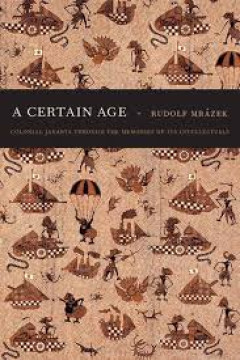
A Certain Age Colonial Jakarta through the Memories of Its Intellectuals
A Certain Age' is an unconventional, evocative work of history and a moving reflection on memory, modernity, space, time, and the limitations of traditional historical narratives. Rudolf Mrázek visited Indonesia throughout the 1990s, recording lengthy interviews with elderly intellectuals in and around Jakarta. With few exceptions, they were part of an urban elite born under colonial rule and …
- Edisi
- -
- ISBN/ISSN
- 9780822346852
- Deskripsi Fisik
- -
- Judul Seri
- -
- No. Panggil
- 959.822022 MRA a
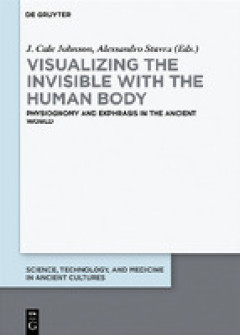
Visualizing the invisible with the human body :physiognomy and ekphrasis in t…
Physiognomy and ekphrasis are two of the most important modes of description in antiquity and represent the necessary precursors of scientific description. The primary way of divining the characteristics and fate of an individual, whether inborn or acquired, was to observe the patient’s external characteristics and behaviour. This volume focuses initially on two types of descriptive literatur…
- Edisi
- -
- ISBN/ISSN
- 9783110642698
- Deskripsi Fisik
- VI, 501 p.
- Judul Seri
- -
- No. Panggil
- 480 JOH v
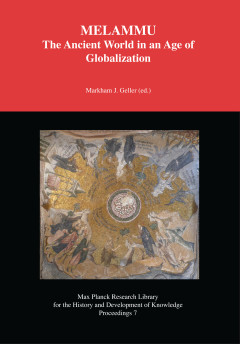
Melammu :the ancient world in an age of globalization
Melammu volumes have broadened the horizons of studies of antiquity by encouraging the crossing of geographical and cultural boundaries between ancient civilizations of the Mediterranean and Near East. The present Melammu volume extends from Greece to India, with articles on Phrygia and Armenia, also viewing texts from ancient Israel, Egypt, and Mesopotamia. The globalization described in this …
- Edisi
- -
- ISBN/ISSN
- 9783945561003
- Deskripsi Fisik
- XI, 385 p.
- Judul Seri
- -
- No. Panggil
- 900.42 MEL m

On Ancient Grammars of Space :Linguistic Research on the Expression of Spatia…
This volume presents new research by the Topoi group "The Conception of Spaces in Language" on the expression of spatial relations in ancient languages. The six articles in this volume discuss static and dynamic aspects of the spatial grammars of Ancient to Medieval Greek, Akkadian, Hittite, and Hieroglyphic Ancient Egyptian, as well as field data on eight modern languages (Arabic, Hebrew, Engl…
- Edisi
- -
- ISBN/ISSN
- 9783110311358
- Deskripsi Fisik
- xxvi, 327 p.
- Judul Seri
- -
- No. Panggil
- 401.9 KUT o
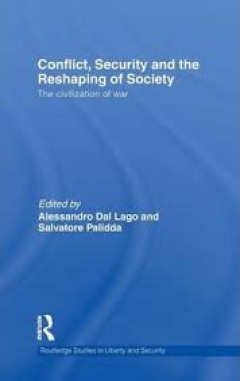
Conflict, security and the reshaping of society:the civilization of war
This book is an examination of the effect of contemporary wars (such as the 'War on Terror') on civil life at a global level. Contemporary literature on war is mainly devoted to recent changes in the theory and practice of warfare, particular those in which terrorists or insurgents are involved (for example, the 'revolution in military affairs', 'small wars', and so on). On the other hand, toda…
- Edisi
- -
- ISBN/ISSN
- 9780415570343(hardcover)
- Deskripsi Fisik
- ix, 227 p. ; 24 cm.
- Judul Seri
- -
- No. Panggil
- 303.66 DAL c

Social theory of fear:terror, torture, and death in a post-capitalist world
Fear has long served elites. They rely on fear to keep and expand their privileges and control the masses. In the current crisis of the capitalist world system, elites in the United States, along with other central countries, promote fear of crime and terrorism. They shaped these fears so that people looked to authorities for security, which permitted extension of apparatuses of coercion like p…
- Edisi
- -
- ISBN/ISSN
- 9780230103498(hc:alk.paper)
- Deskripsi Fisik
- 234 p. ; 22 cm.
- Judul Seri
- -
- No. Panggil
- 320.9051 SKO s
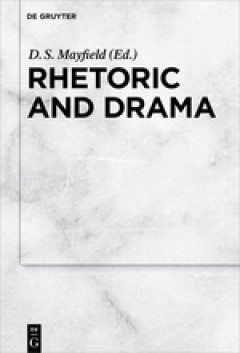
Rhetoric and drama
Proving fruitful in various applications throughout its two millennia of predominance, the rhetorical téchne appears to have entertained a particularly symbiotic interrelation with drama. With contributions from (among others) a Classicist, historical, linguistic, musicological, operatic, cultural and literary studies perspective, this publication offers interdisciplinary assessments of specif…
- Edisi
- -
- ISBN/ISSN
- 9783110484663
- Deskripsi Fisik
- X, 244 p.
- Judul Seri
- -
- No. Panggil
- 808 MAY r
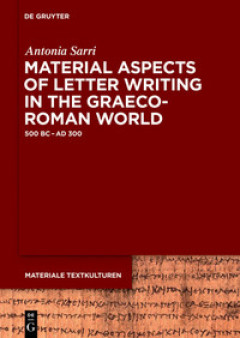
Material aspects of letter writing in the Graeco-Roman world, 500 BC-AD 300
Letter writing was widespread in the Graeco-Roman world, as indicated by the large number of surviving letters and their extensive coverage of all social categories. Despite a large amount of work that has been done on the topic of ancient epistolography, material and formatting conventions have remained underexplored, mainly due to the difficulty of accessing images of letters in the past. Tha…
- Edisi
- -
- ISBN/ISSN
- 9783110426953
- Deskripsi Fisik
- viii, 388 p.
- Judul Seri
- -
- No. Panggil
- 886.0109 SAR m

Cultural Crossroads in the Middle East
The region of the Middle East has been called the cradle of mankind. This volume studies historical, cultural, religious, social and political legacies, which play a central role in obstructing intercultural dialogue in the Middle East. The region became home to numerous cultures, religions and ethnicities with long experience of living together in a multicultural environment and has an immense…
- Edisi
- -
- ISBN/ISSN
- 9789949031764
- Deskripsi Fisik
- 349 p.
- Judul Seri
- -
- No. Panggil
- 200 CUL c

Materiality of writing in early Mesopotamia
This volume presents recent research on the relationship between the material format of text-bearing artefacts, the texts they carry, and their genre. The essays cover a vast period, from the counting stones of the late 4th millennium BCE to the time of the Great Hittite Kingdom in the 2nd millennium BCE. The breadth of substantive focus allows new insights of relevance to scholars in both Anci…
- Edisi
- -
- ISBN/ISSN
- 9783110459630
- Deskripsi Fisik
- VI, 301 p.
- Judul Seri
- -
- No. Panggil
- 411.7 BAL m
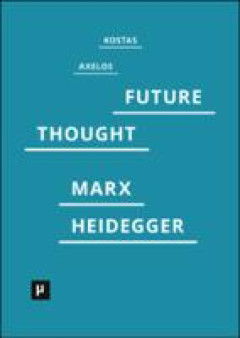
Introduction to a Future Way of Thought on Marx and Heidegger
"Technologists only change the world in various ways in generalized indifference; the point is to think the world and interpret the changes in its unfathomability, to perceive and experience the difference binding being to the nothing." Anticipating the age of planetary technology Kostas Axelos, a Greek-French philosopher, approaches the technological question in this book, first published in 1…
- Edisi
- -
- ISBN/ISSN
- 9783957960054
- Deskripsi Fisik
- 183p.
- Judul Seri
- -
- No. Panggil
- 193 INT i
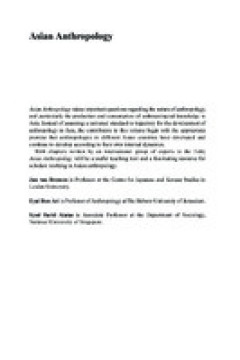
Asian anthropology
Asian Anthropology raises important questions regarding the nature of anthropology and particularly the production and consumption of anthropological knowledge in Asia. Instead of assuming a universal standard or trajectory for the development of anthropology in Asia, the contributors to this volume begin with the appropriate premise that anthropologies in different Asian countries have develop…
- Edisi
- -
- ISBN/ISSN
- 9780415349833
- Deskripsi Fisik
- -
- Judul Seri
- -
- No. Panggil
- 301.9 ASI a
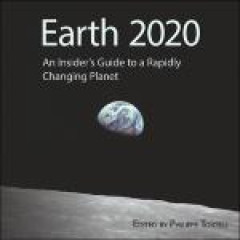
Earth 2020:An Insider’s Guide to a Rapidly Changing Planet
Fifty years have passed since the first Earth Day, on 22 April 1970. This accessible, incisive and timely collection of essays brings together a diverse set of expert voices to examine how the Earth’s environment has changed over this past half century, and what lies in store for our planet over the coming fifty years. Earth 2020: An Insider’s Guide to a Rapidly Changing Planet responds to …
- Edisi
- -
- ISBN/ISSN
- 9781783748471
- Deskripsi Fisik
- xii, 279p.: ill
- Judul Seri
- -
- No. Panggil
- 550 EAR e
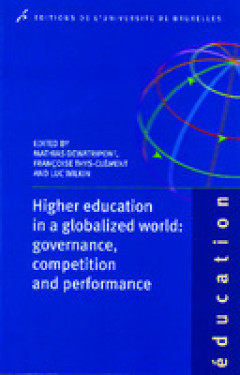
HIgher education in globalized world:governance, competition and performance
This book offers an improved understanding of European higher education, both from a scientific and a policy point of view.
- Edisi
- -
- ISBN/ISSN
- 9782800414225
- Deskripsi Fisik
- 300p.: ill
- Judul Seri
- -
- No. Panggil
- 378.4 LUC h
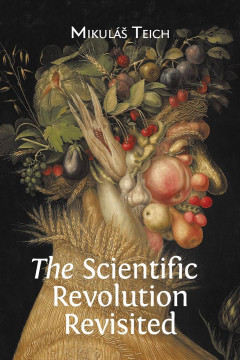
The Scientific revolution revisited
"The Scientific Revolution Revisited brings Mikuláš Teich back to the great movement of thought and action that transformed European science and society in the seventeenth century. Drawing on a lifetime of scholarly experience in six penetrating chapters, Teich examines the ways of investigating and understanding nature that matured during the late Middle Ages and the Renaissance, charting th…
- Edisi
- -
- ISBN/ISSN
- 9781783741243
- Deskripsi Fisik
- 156 p.; 22 cm.
- Judul Seri
- -
- No. Panggil
- 303.64 TEI s

Hard reading:learning from science fiction
Tom Shippey.
- Edisi
- -
- ISBN/ISSN
- 9781781382615(hbk.)
- Deskripsi Fisik
- xvi, 334 pages ; 24 cm.
- Judul Seri
- -
- No. Panggil
- -
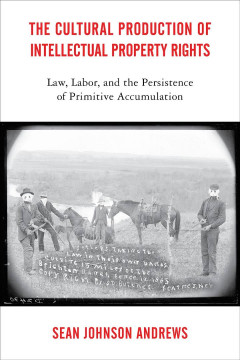
The Cultural production of intellectual property rights
This book looks at questions of intellectual property rights (IPR) -- historically, culturally, and politically -- and their relationship to law and the state. Arguing that the idea that intellectual property is another kind of property right (that is, that IP is a thing to be owned) exists in parallel with the idea that intellectual property is the consequence of a cultural process, Andrews di…
- Edisi
- -
- ISBN/ISSN
- 9781439914298
- Deskripsi Fisik
- -
- Judul Seri
- -
- No. Panggil
- 301 JOH c
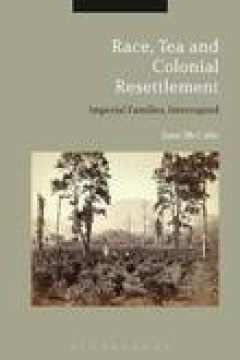
Race, tea and colonial resettlement :imperial families, interrupted
Historian Jane McCabe leads us through a compelling research journey that began with uncovering the story of her own grandmother, Lorna Peters, one of 130 adolescents resettled in New Zealand under the scheme between 1908 and 1938. Using records from the ‘Homes’ in Kalimpong and in-depth interviews with other descendants in New Zealand, she crafts a compelling, evocative, and unsentimental …
- Edisi
- -
- ISBN/ISSN
- 9781474299503
- Deskripsi Fisik
- XVIII, 254 p.
- Judul Seri
- -
- No. Panggil
- 305.80521091411093 MCC r
 Karya Umum
Karya Umum  Filsafat
Filsafat  Agama
Agama  Ilmu-ilmu Sosial
Ilmu-ilmu Sosial  Bahasa
Bahasa  Ilmu-ilmu Murni
Ilmu-ilmu Murni  Ilmu-ilmu Terapan
Ilmu-ilmu Terapan  Kesenian, Hiburan, dan Olahraga
Kesenian, Hiburan, dan Olahraga  Kesusastraan
Kesusastraan  Geografi dan Sejarah
Geografi dan Sejarah